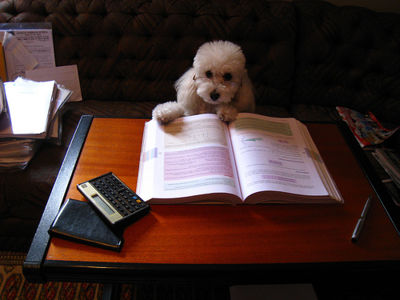HD Sandbox 3
Contents
[hide]Requirements of a Tertiary Educator
"Tertiary educators in the 21st century are dual professionals with expertise in the workplace from their trade or profession and in the facilitation of learning. As team players they collaborate with others to ensure the best possible outcomes for all learners in their care and to work proactively in the context of Te Tiriti o Waitangi to ensure success for Māori. Highly culturally competent, they exhibit Manaakitanga for all learners. This means they treat all learners with respect and kindness, making them feel welcome and cared for within the learning environment. These tertiary educators recognise and respect the multi-faceted diversity of their learners and seek to treat and value them as individuals.
Learning with these educators is challenging, exciting, supportive and purposeful. By no means least, it is fun. Above all, it is focussed on developing each learner’s capabilities to maximise their own potential and future opportunities. That learners achieve success on their programmes of study is only part of the goal for these educators: ensuring their learners are best equipped for the next steps in work or further study is, ultimately, more important.
Relevant work experience and contexts are fundamental to high quality vocational education. This means that professional practice as a tertiary educator is not bounded by either the limits of the educational organisation or by the qualifications offered. Emphasis is on achieving the best possible synergies between the world of education and the world of work in all the diverse forms of each.
Digital technologies are employed routinely as tools to support learning and provide access to relevant content in an organised way that suits the needs of the individual learner. Teaching and learning facilitation focuses on concepts, developing deeper understanding and the attributes that enhance learners’ employability. Learners are progressively equipped with the strategies to become confident in their studies, time-efficient and, progressively, more autonomous.
Twenty-first century tertiary educators are, in a very real sense, partners with their learners and negotiate the learning environment and opportunities with them. In particular these educators seek to recognise and build on the existing knowledge, strengths and skills of each learner and foster learning between peers. Their assessment strategies are designed to foster learning and build wherever possible on naturally occurring evidence. Such educators are highly skilled in actively managing any risk to learning. This means that they are not afraid to experiment alongside learners in order to foster innovative, creative and motivating learning opportunities and to learn alongside the learners in their care.
Highly professional tertiary educators are continually challenging themselves about their own practice and looking for continuing quality enhancement. They are critically self-reflective and undertake this self-reflection in a systematic and evidence-based way. Nor is their self-reflection limited to their education practice: they are also future-focussed in terms of their trade or profession. They are helping their learners prepare for an inevitably changing future."
- Otago Polytechnic, (2012). Graduate Diploma in Tertiary Education: Programme document. Dunedin, New Zealand: Otago Polytechnic.
Welcome and Introductions
Welcome to Gaining Foundation Skills for Learning and Teaching.(GFS)I'm Heather Day the course facilitator and I hope this course provides you with an introduction and overview of useful skills and knowledge for those new to tertiary teaching. It can also be used as a great refresher of sometimes forgotten basics for those who have been teaching adults for a while.
The schedule found under the course modules tab is for formal learners in the course. Informal learners are welcome to either follow the schedule in your own time or dip into the resources and play with the information shared in the hope that it adds to your own learning.
| Quick Link to Course Modules |
|---|
| Module One Learning |
| Module Two Lesson Planning |
| Module Three Teaching Methods |
| Module Four Teaching Resources |
| Module Five Assessment Introduction |
| Module Four Self and Peer Review |
The formal Gaining Foundation Skills for Learning and Teaching course is designed as a self paced independent learning package (of up to 10 weeks duration) with facilitated support. I will be in regular contact throughout the duration of the course and shared learning with others is encouraged through a discussion site for this course on Moodle.
Attached is the 2012 course outline for formal participants.
To make a start click on the Getting Started tab in the header box at the top of this page.
Participants can formally enrol by emailing EDCEnquiries@op.ac.nz.
This page contains information, content and resources for the course Assessing for Prior Learning, which is a level 7 elective course within the Graduate Certificate in Tertiary Learning and Teaching - level 7 (GCTLT), delivered by the Educational Development Centre (EDC) at Otago Polytechnic, Aotearoa New Zealand. To find out more about the programme read the GCTLT information sheet 2010
The Assessing for Prior Learning course offers understandings into the principles and practices of the recognition of prior learning (RPL) from the perspective of both an assessor and a candidate. This course explores how evidence can be gathered and presented and how sound assessment decisions are made.
The formal Assessing for Prior Learning course is designed as a self paced independent learning package (of estimated 8 to 10 week duration on average) with facilitated support. The course facilitator will be in regular contact throughout the duration of the course.
Participants can formally enrol by emailing EDCEnquiries@tekotago.ac.nz.

Course Aims
To enhance participants’ understandings of, and insights into, the principles and practices of prior learning and associated debates in a tertiary context and explore how evidence can be presented and assessed.
To prepare participants for a prior learning assessment process using a model designed to evaluate evidence against predetermined learning outcomes.
Course Learning Outcomes
At the successful completion of this course, participants will be able to:
- 1. consider the role(s) of prior learning in tertiary education
- 2. gain understandings of and insights into the principles and practices underpinning prior learning
- 3. explore culturally sensitive ways in which evidence of prior learning can be presented and assessed
- 4. critically reflect on own significant prior learning and review related evidence against predetermined learning outcomes
- 5. consider assessment strategies and the authenticity of evidence
- 6. demonstrate how professional judgement informs the assessment process
Ready to make a start? Click on the links below to go to the:
-
- includes information on getting started in the course
-

